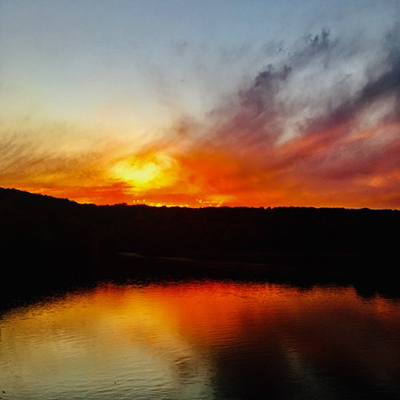I found myself paying closer attention today to the things around me. I think this is commonly referred to as mindfulness, even though there seems to be a bit of a spiritual misunderstanding that mindfulness is solely about feeling relaxed and peaceful. Mindfulness is more about developing a keener awareness of the present moment, even if that moment might happen to include some difficulties.
For example, if you become keenly aware of corruption in your own government it’s not going to make you feel relaxed and peaceful. It’s going to make you feel outraged—a natural response to outrageous greed and deception However, the challenge of mindfulness is to be able to feel your outrage and let go of it so you can also experience more pleasant things. If you can’t let go of your outrage, the enraging situation or person will continue to have power over you and you will never be free.
I felt very free this afternoon as I was walking through the park and noticed a majestic crane on the edge of a pond. I didn’t get a sense that the crane needed to work on mindfulness. Three young girls walked up with their mom and watched the crane with me. After the crane flew away, they were eager to show off their gymnastics abilities on the grass. As I stood with their mom and watched, I was reminded how important it is to be noticed and how terrible of a feeling it is to be invisible. Ralph Ellison wrote an important novel about this experience called Invisible Man. I read his novel during a period as a young writer when I felt invisible.
It is easy for aspiring artists to feel invisible, easy for them to feel on the outside looking in. I have been on both the inside and the outside of the literary kingdom and have managed to find the middle ground between feeling like a prince and feeling like a pauper. I don’t mean to imply that the struggles of an aspiring writer compare in any way to the struggles to a disenfranchised person of color who feels truly invisible in our culture.
One of my favorite professors in graduate school used to talk about the political and economic tension between the haves and the have-nots in our society. He was Native American. He recommended that I read the book Bury My Heart at Wounded Knee. I followed his recommendation so I could have a better understanding of the dark shadows of American history whose effects have left the Native American people in terrible poverty.
Needless to say, when you are mindful of poverty it doesn’t make you feel relaxed and peaceful. It makes you feel that something is wrong, which can be as inherently stressful as sitting on a plane next to a baby who is inconsolably crying. In some ways, it feels like we are all on a plane together, but the crying we hear is not a baby. It is the cry of our country’s soul. We can hear this crying no matter where we are sitting—even if we try moving to first class. Contrary to popular fears, being mindful of poverty doesn’t make you feel poorer inside. It doesn’t make you depressed unless some other void in your life is driving that depression. Be aware of the spiritual challenges of affluence. Many years ago, I used to have a religious client who would say, “It’s harder for a rich man to get to heaven than a poor man.” He was once a rich man who became a poor man. When he lost all his money, I worked with him for free for a couple of years. I was mindful of the choice I was making, knowing that sometimes when you give more you end up getting more in return.


